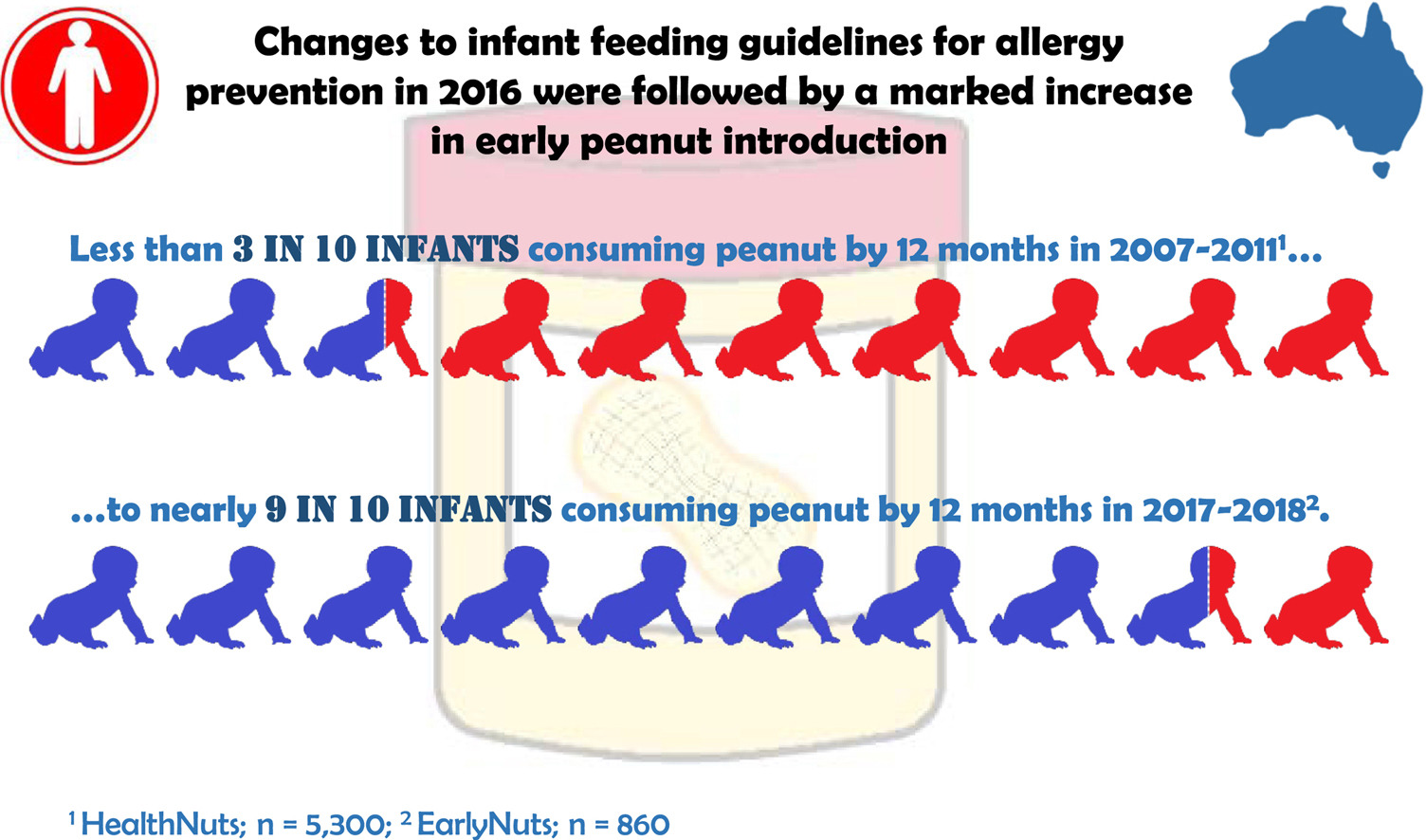Study reveals ‘striking' uptake of early peanut introduction among Australian families with infants

Australian infant feeding guidelines were updated in 2016 to recommend introducing peanuts before 12 months for all infants. In its recent study MCRI set out to analyze what impact the guideline changes have had on peanut allergies.
The US recently published its early allergen introduction guidelines as part of the USDA 2020-2025 Dietary Guidelines. The new set of guidelines included a section on introducing infants to potentially allergenic foods including peanuts. The USDA also recommended that for infants at high risk of peanut allergy (i.e. infants that have severe eczema, egg allergy, or both) to introduce age-appropriate, peanut-containing foods as early as 4- to 6-month-old.
“The recent implementation of new Australian infant feeding guidelines in 2016, which do not recommend screening before peanut introduction, were followed by a striking shift toward earlier peanut introduction in the population. Most parents are now introducing their infants to peanut and egg by 12 months of age, which is much earlier than a decade ago,” wrote the study authors.
Early allergen introduction uptake
To determine if national dietary guidelines which recommended early allergy introduction had any impact on the prevalence of peanut allergy in infants, MCRI researchers compared data from 1,933 infants enrolled in the EarlyNuts study in 2018-2019 to the 5,276 infants recruited in the HealthyNuts study in 2007-2011.
The research found the peanut allergy prevalence in 2018-2019 was 2.6% compared to 3.1% in 2007-2011. Researchers noted how data collection from participants is ongoing for the EarlyNuts study, and it would have a full picture of the results once it receives the results from the second half of participants.
“We will be able to assess the important question of the effect of earlier introduction of allergenic foods on challenge-proved food allergy prevalence in the population at completion of the current EarlyNuts study,” said the study’s researchers.
Lead author of the study and MCRI PhD candidate, Victoria Soriano also noted a striking shift toward earlier peanut introduction – 89% of parents in the study reported introducing their infant to peanuts by age 1 in 2019 compared to 28% in 2007-2011.
Conversely, peanut allergy prevalence in 2018-2019 among infants who did not consume peanut until 12 months or later was 4.8%.
“We will be able to assess the important question of the effect of earlier introduction of allergenic foods on challenge-proved food allergy prevalence in the population at completion of the current EarlyNuts study,” noted researchers.
More research needed
Despite results of the study showing a downward trend in peanut allergy prevalence among a relatively small sample of infants, MCRI’s Dr. Jennifer Koplin recommends that further investigation is needed before drawing any sweeping conclusions about the efficacy of early allergen introduction.
According to one study, Australia has the highest rate of peanut allergies with roughly one in 10 infants and one in 20 children up to five-years-old being allergic. In the US, non-profit group FARE (Food Allergy Research & Education) estimates that one in 13 children has a food allergy with peanuts, milk, shellfish, and tree nuts reported as the most common food allergies.
"The safety of early peanut introduction at home is of significant interest to parents as well as health professionals around the world," MCRI Dr. Jennifer Koplin said. "More research must be done to look closer at these trends to help us understand how well early introduction to peanut works to prevent peanut allergies in real-life situations."

















